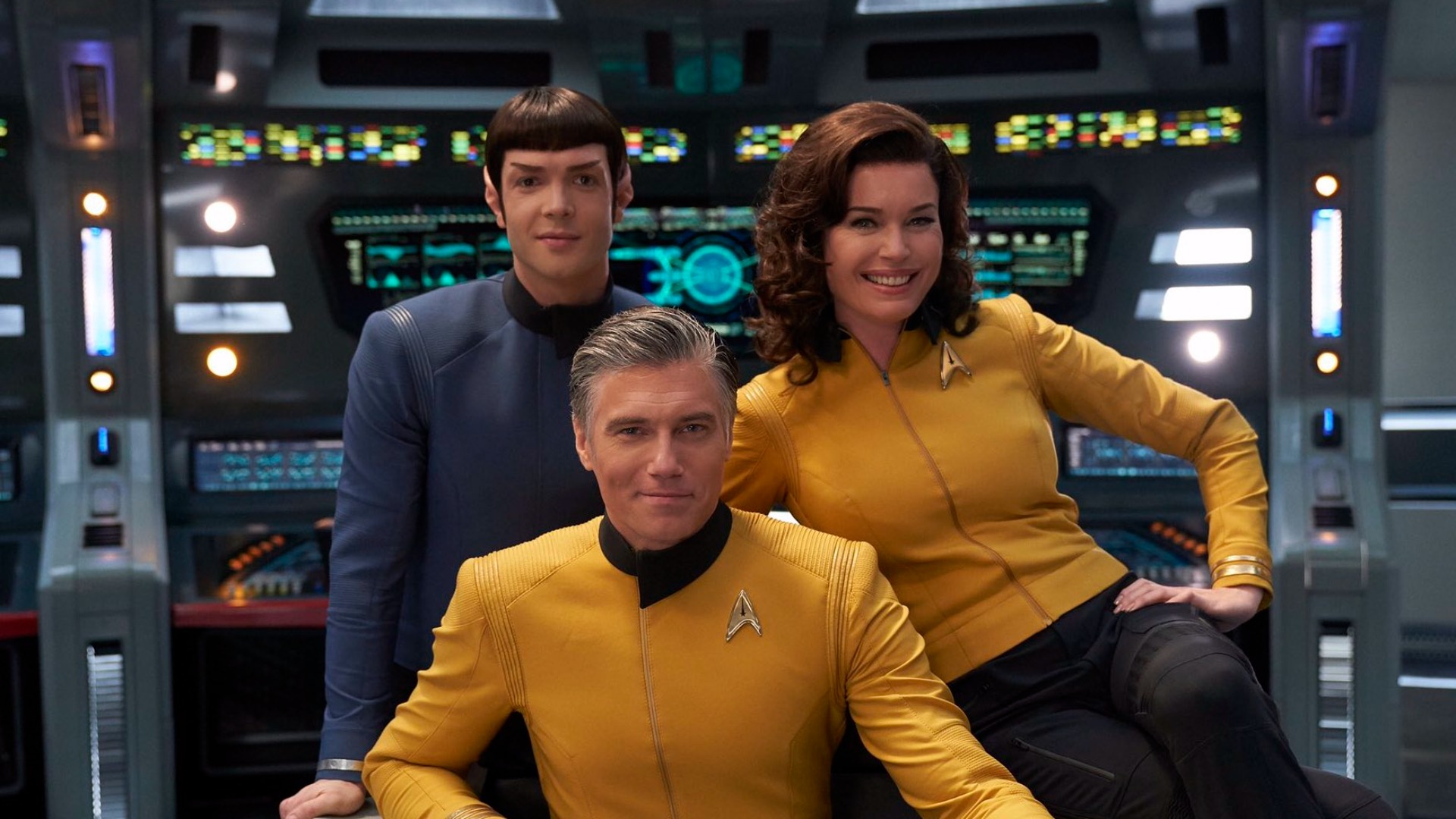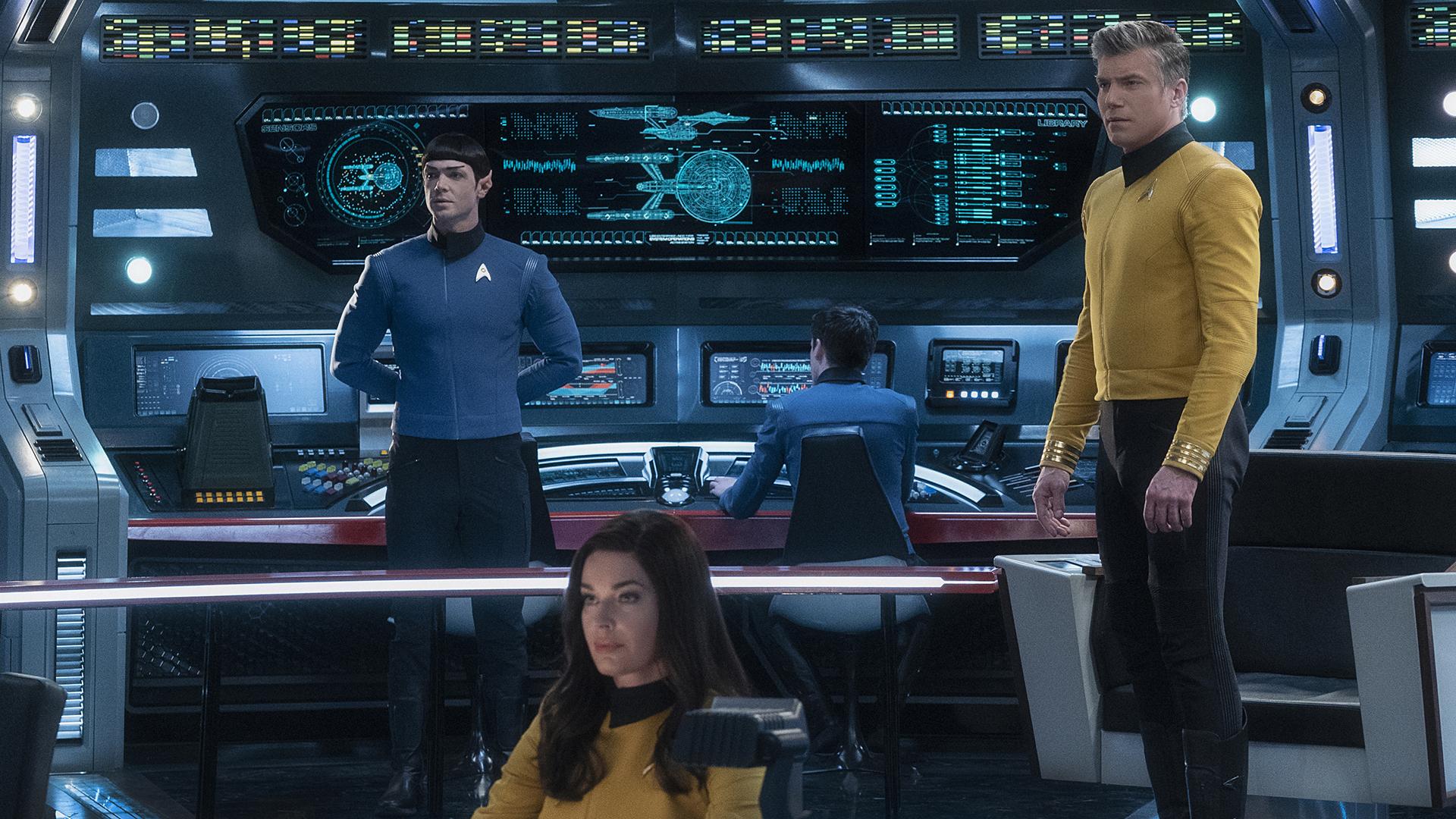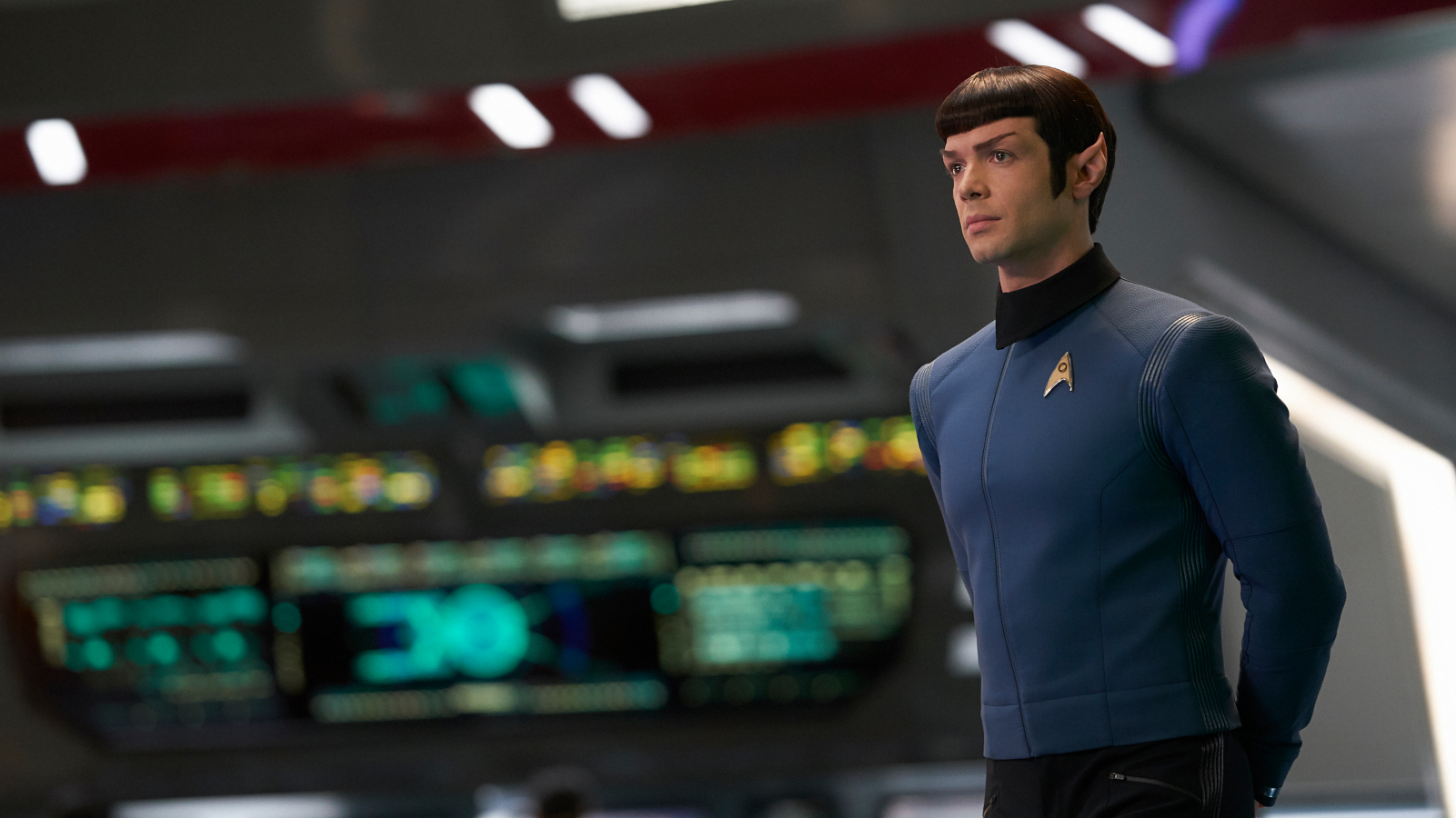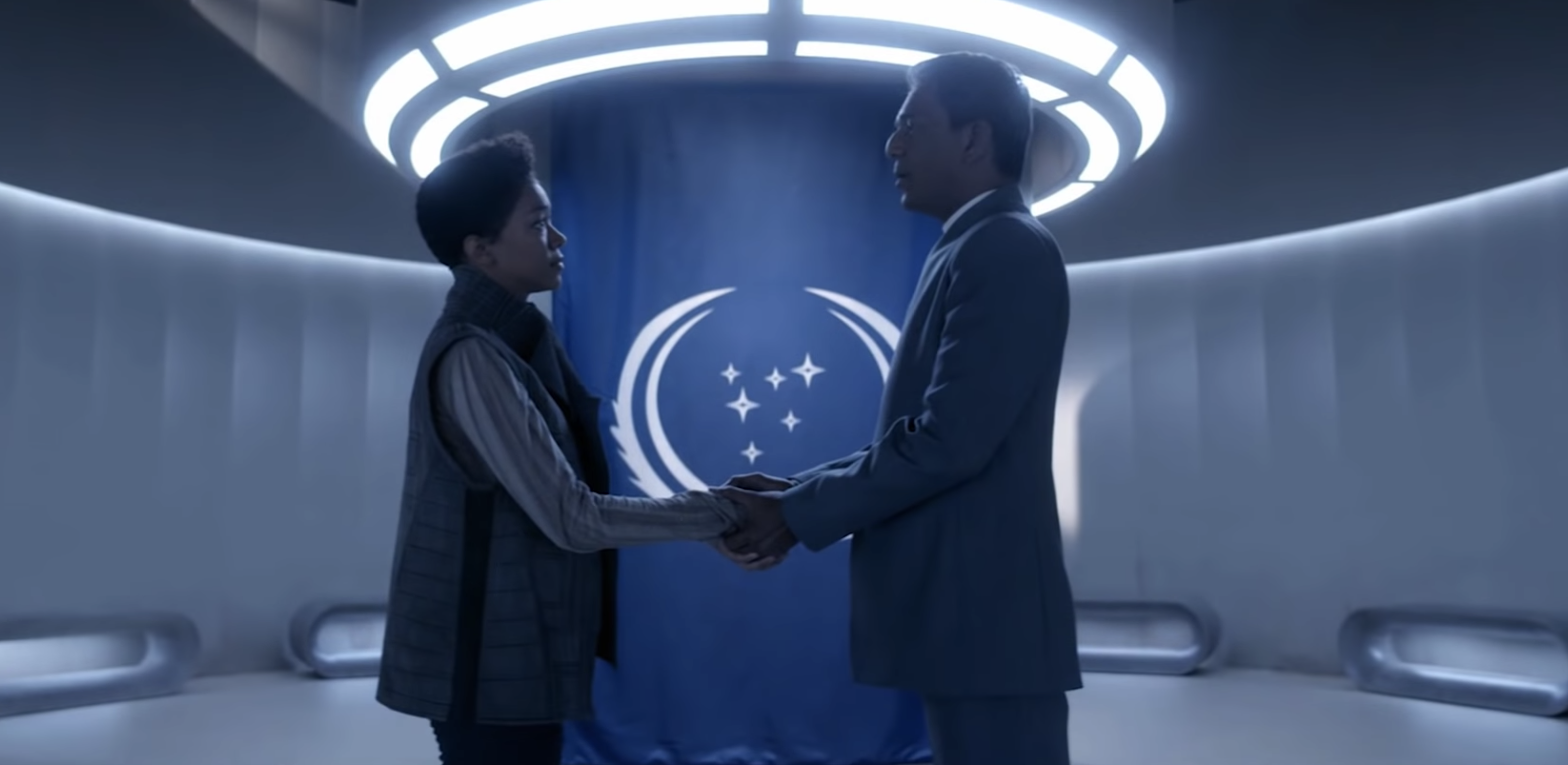Why Strange New Worlds is the show Star Trek – and the world – needs right now
Pike, Spock, and Number One are returning to our screens – and there's never been a better time

What’s in a name? When it comes to Star Trek TV shows, a title says a hell of a lot. The opening credits of The Next Generation were enough to tell us it was Trek for, well, a new generation; Voyager implied a crew on a long journey; Picard instantly made it clear that the mission was a man. Prequel series Enterprise tried to make a statement by removing Star Trek from its name entirely – though it did wind up reinstating it for season three when the producers realised their mediocre efforts at subterfuge were fooling nobody.
The recently announced Star Trek: Strange New Worlds has arguably the most evocative title of the lot. Lifted from James T. Kirk’s original five-year mission statement – y’know, the one about seeking out new life and new civilisations – it conjures the spirit of adventure, that back-to-basics formula of an intrepid crew boldly going to unexplored regions of the galaxy. It has the potential to be the purest distillation of the original Star Trek ethos since The Next Generation last beamed off screens in 1994, and could just be just what the franchise – and planet Earth – needs in these unusual times.
Stranger worlds

Strange New Worlds certainly seems to be the show the Star Trek faithful want, with fan power a driving force in the series’ green light. Audiences were so taken with Captain Christopher Pike, Science Officer Spock and First Officer ‘Number One’ when the USS Enterprise warped into Star Trek: Discovery last year that they’ve been given the command codes to their own spin-off. Think Angel, Frasier or – ahem – Joey, but in the 23rd century.
“When we said we heard the fans’ outpouring of love for Pike, Number One and Spock when they boarded Star Trek: Discovery last season, we meant it,” executive producer and Trek’s TV commander-in-chief Alex Kurtzman told StarTrek.com. “These iconic characters have a deep history in Star Trek canon, yet so much of their stories have yet to be told. The Enterprise, its crew and its fans are in for an extraordinary journey to new frontiers in the Star Trek universe.”
Those frontiers aren’t entirely new, of course. Pike, Spock and Number One pre-date even Kirk himself, having headed up the Enterprise crew in the original Star Trek pilot. Filmed in 1965, their sole appearance in "The Cage" didn’t make the grade with network executives and didn’t air until decades later – though the pilot did become canon via flashbacks in Original Series two-parter "The Menagerie". The suits had seen enough to give Star Trek creator Gene Roddenberry an unlikely second chance, but by the time the series left Spacedock in 1966, only Spock was still serving on the Enterprise bridge.
With barely an hour of screentime to play with, original Pike Jeffrey Hunter never really got the chance to make his mark. Indeed, despite his matinee idol good looks, Hunter’s Pike is too dry and strait-laced to convince as the lead of an action TV show – there are few signs he’d ever have become a pop culture icon of Kirk-shaped proportions.
Yet in just one season on board Discovery, Anson Mount turned Pike into one of Starfleet’s most memorable commanding officers, a man whose boy scout decency never got in the way of his innate charisma. The contrast with evil Mirror Universe CO Gabriel Lorca couldn’t have been starker – this Pike is so honourable that he takes painful visions of his tragic future on the chin for the greater good – yet he instantly made the captain’s chair his own.
Sign up for the Total Film Newsletter
Bringing all the latest movie news, features, and reviews to your inbox
When Discovery blasted off to the distant future in the season two finale, established continuity ensured that Pike had to stay behind. So Strange New Worlds provides a welcome excuse to keep him – and Spock and Number One – on TV. That’s good news because Mount, Ethan Peck (as Spock) and Rebecca Romijn (as Number One – a comparative blank slate at this point) have already done enough to suggest they have good enough on-screen chemistry to carry a show. Handled wisely the trio could even echo the iconic Kirk/Spock/McCoy axis that was the engine room of the Original Series.
Classic Star Trek values

If either Discovery or Picard were your introduction to the Star Trek universe, you’ll be wondering what executive producer Akiva Goldsman was on about when he told Variety, “We’re going to try to harken back to some classical Trek values, to be optimistic, and to be more episodic.”
In Trek terms, however, the recent heavily serialised, morally ambiguous shows are the anomaly, as much products of the present day as the half-century-old franchise that spawned them. In this era of peak TV – dominated by shades-of-grey antiheroes and complex moral choices – Roddenberry’s idealistic vision of the future had come to feel unfashionable, an anachronism of old-school network TV. But now that Trek has proved it can escape its roots, there’s no reason it shouldn’t go back – why be apologetic about being part of one of the greatest pop culture franchises of all time?
Standalone stories of the week are part of Star Trek’s DNA. Beaming to a new planet, sorting out a few problems, going home and forgetting all about it – that's been part of the mix since day one. But as with Doctor Who, the ability to be a new show every week, telling a different story in a different location with a new cast of supporting players, has always been key to Trek’s longevity. There are plenty of strange new worlds still to explore, and a hell of a lot of debates to have about the pro and cons of violating the Prime Directive. Who wants to let The Orville have all the fun?
Besides, there’s no reason Spock’s old adage about “infinite diversity in infinite combinations” shouldn’t also apply to Star Trek TV shows. With Kurtzman having already told the Hollywood Reporter that, “the intention is to have something Star Trek on the air all the time,” Discovery, Picard and Strange New Worlds will be joined on screen by animated comedy Lower Decks and spy drama Section 31. That means even more Trek shows running simultaneously than we had in the glory days of the ’90s – and if they’re all going to survive, they need to be distinct.

... we have Star Trek: Discovery season 3 to look forward to. Click that link to find our everything we know about S3.
The powers-that-be (kind of) realised that in the ’90s and early ’00s – Deep Space Nine’s space station setting was a big departure from The Next Generation’s starship adventures, while Voyager’s ‘lost in the Delta Quadrant’ set-up (theoretically) shook things up again. But – DS9 aside – those shows were often hamstrung by a ‘What would Roddenberry do?’ approach that kept ongoing storylines and conflict between the ship’s crew at a bare minimum. Even Enterprise, set a century before the Original Series, struggled to break free from the franchise’s long-standing conventions. At least now there should be the freedom to have five shows all carving their unique course in the Star Trek universe. All Trek but all different.
Now that Discovery and Picard have pulled the franchise into the 21st century, the course is cleared for Strange New Worlds to celebrate Star Trek’s past, the modern-day franchise’s hymn to positivity. The depressing state of planet Earth right now doesn’t mean that every TV show has to be a joyful celebration of life; there’ll always be room for complex drama exploring the dark side of the human condition. But the optimistic ideals of the future Trek was built on – a world of tolerance, listening to other points of view, and working together towards a common goal – are all messages we could use right now. If Star Trek can’t work in that space unashamedly, then what on earth is it for?
Want more Trek coverage? Here's our guide to the Star Trek timeline
Richard is a freelancer journalist and editor, and was once a physicist. Rich is the former editor of SFX Magazine, but has since gone freelance, writing for websites and publications including GamesRadar+, SFX, Total Film, and more. He also co-hosts the podcast, Robby the Robot's Waiting, which is focused on sci-fi and fantasy.


